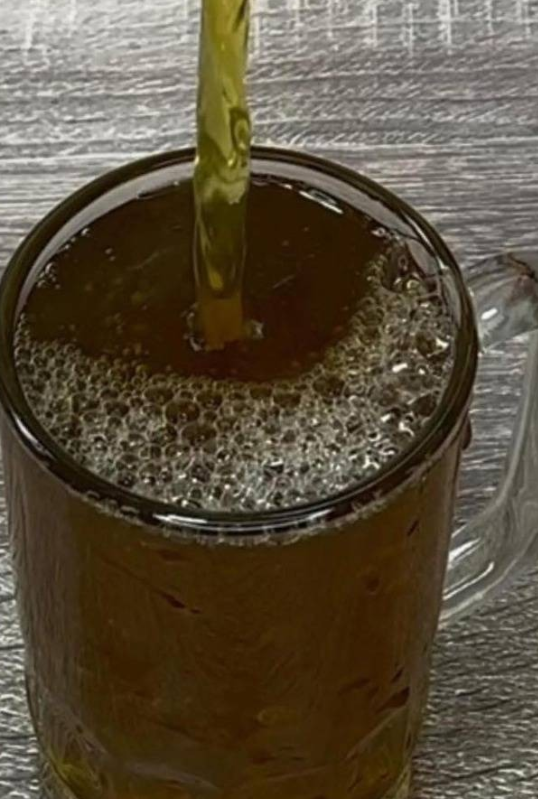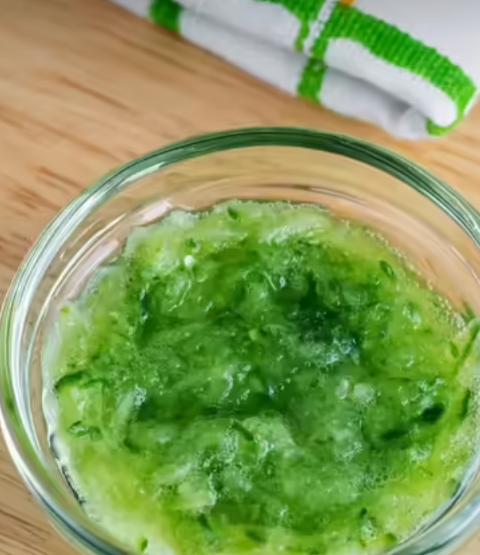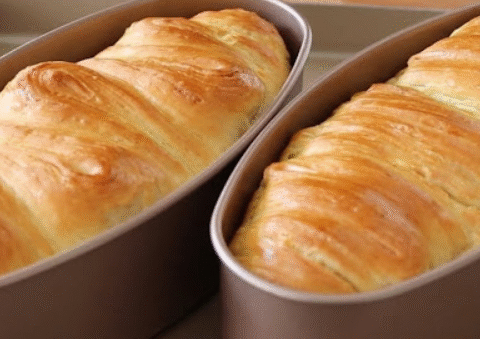The Four Leaves That Eliminate Diabetes, Cancer, Fatty Liver Problems, Poor Circulation & High Blood Pressure Without the Need to Take Pills 🌿
Published October 18, 2025 by admin – Medicinal plant seeds
Imagine a simple tea made from four leaves you might have in your garden — one that supports healthy blood sugar, protects your liver, enhances circulation, lowers high blood pressure, and possibly reduces the risk of cancer. Sound too good to be true? While no single remedy “eliminates” everything, traditional and emerging science suggest that certain botanical leaves may offer real supportive benefits. Here, we explore the potential of four leaves: avocado, mango, soursop (graviola) and a fourth supportive leaf — how they may help you, how to prepare them, how they fit into a healthy lifestyle and the realistic expectations you should maintain. 🍵
We’ll also include expert commentary (from top chefs and nutrition‑savvy voices), health and safety considerations, and a full nutrition table. By the end you’ll be equipped with practical ideas, plus 10 FAQs to answer common questions.
Introduction
In an era when chronic diseases like type 2 diabetes, fatty liver disease, high blood pressure, cancer and circulatory problems are on the rise, many people are looking for natural ways to support their health. Many herbs and leaves used in traditional medicine systems are now being studied in modern labs. While they are not miracles and not replacements for conventional medical care, they may serve as useful **adjuncts** to a healthy lifestyle (diet, movement, sleep, stress management). Think of them as allies—not magic bullets.
In this article, we’ll focus on:
- The four leaves (what they are and what evidence we have)
- How you might prepare them safely
- Nutritional and health benefit breakdown
- Safety, contraindications and realistic expectations
- 10 detailed FAQs
Let’s start our journey — with the first leaf.
1. Avocado Leaf – Avocado Leaf Tea
What it is
The leaves of the avocado tree (Avocado, *Persea americana*) have been used in various traditional preparations such as teas and decoctions. While the fruit itself is widely appreciated, the leaves are now drawing attention for possible health‑supporting properties.
What the research says
Studies and herbal‑medicine sources suggest that avocado leaves are rich in antioxidants such as flavonoids, quercetin and polyphenols. :contentReference[oaicite:1]{index=1}
Some sources report that avocado leaf tea may help reduce blood pressure by relaxing blood vessels. :contentReference[oaicite:2]{index=2}
They may also support digestion, reduce inflammation and assist liver health. :contentReference[oaicite:3]{index=3}
Emerging uses include supporting blood glucose regulation: “Like many teas, the antioxidants and phytochemicals … assist your body in burning fat and glucose.” :contentReference[oaicite:4]{index=4}
Potential benefit areas
- Blood pressure and cardiovascular support.
- Antioxidant and anti‑inflammatory effects.
- Digestive and liver support.
- Possibly supporting healthy blood sugar levels.
How to prepare
Here’s a simple method:
- Use 3‑4 avocado leaves (washed).
- Bring about 2 cups (≈500 ml) of water to a boil.
- Add the leaves, simmer for 8‑10 minutes.
- Strain and drink warm. Some add a slice of lemon or a dash of cinnamon to enhance flavour.
If using dried leaves, you may steep longer (10‑15 minutes) or let it steep off the heat for a few minutes.
Safety considerations & limitations
Important safety notes:
- Because avocado‑leaf extracts may affect blood pressure or blood glucose, people already on medications (e.g., for hypertension or diabetes) should consult their doctor before combining.
- There is limited human clinical trial data — most evidence is preliminary or from herbal/traditional sources.
- Not a standalone cure: this leaf supports health but does **not** replace standard medical care for serious conditions.
2. Mango Leaf – Mango Leaf Tea
What it is
The leaves of the mango tree (Mango, *Mangifera indica*) have been used in folk medicine in many parts of the world, often as teas or extracts.
What the research says
Mango leaves contain terpenoids, polyphenols, mangiferin and flavonoids — plant compounds studied for antioxidant, anti‑diabetic, anti‑cancer and liver‑protective actions. :contentReference[oaicite:6]{index=6}
Some studies suggest mango leaf extract may help manage blood sugar and fat metabolism (mainly in animal models). :contentReference[oaicite:7]{index=7}
They are also associated with hypotensive (blood‑pressure‑lowering) effects and support of blood vessel strength. :contentReference[oaicite:8]{index=8}
Potential benefit areas
- Support for blood sugar regulation and possibly early‑stage type 2 diabetes support.
- Blood pressure / vascular health support.
- Antioxidant, anti‑inflammatory support and liver health (hepato‑protection).
- Digestive and fat‑metabolism support (which may assist in fatty liver conditions).
How to prepare
Here’s a method you can try:
- Take about 10‑15 fresh mango leaves (washed).
- Boil them in about 250‑500 ml water for 10‑15 minutes, then allow to steep overnight (or at least several hours).
- Strain and drink on an empty stomach in the morning.
In some traditions, the cooled infusion is consumed early in the day for maximal effect. :contentReference[oaicite:9]{index=9}
Safety considerations & limitations
Important notes:
- Human clinical trials are still limited: much of the evidence comes from animals or extracts rather than whole‑leaf teas. :contentReference[oaicite:10]{index=10}
- As with any active botanical, interacting with medications (for blood sugar, blood pressure) is a possibility.
- Not a substitute for standard diabetes or hypertension therapies — it supports but does not replace.
3. Soursop Leaf – Soursop Leaf Tea (Graviola)
What it is
The leaves of the soursop tree (Soursop, also known as graviola, *Annona muricata*) are used traditionally in tropical regions for a variety of health purposes.
What the research says
Soursop leaves and extracts contain flavonoids, acetogenins, phytosterols and tannins with antioxidant and anti‑inflammatory properties. :contentReference[oaicite:12]{index=12}
There is some evidence (mainly pre‑clinical) that soursop may help regulate blood sugar and reduce blood pressure. :contentReference[oaicite:13]{index=13}
It is used traditionally for liver protection, hypertension and diabetes management. :contentReference[oaicite:14]{index=14}
However: robust human trials are lacking; some evidence points to risks with long‑term use or high doses. :contentReference[oaicite:15]{index=15}
Potential benefit areas
- Blood sugar support (insulin resistance / type 2 diabetes adjunct).
- Blood pressure / cardiovascular support.
- Liver protection and anti‑oxidative support (which may be relevant for fatty liver issues).
- Anti‑inflammatory and general cellular‑health support (relevant for cancer‑prevention discussions, though not proven).
How to prepare
Here’s how one might safely prepare it:
- Use 4‑5 fresh soursop leaves (washed).
- Steep them in hot water (~2 cups) for about 8‑10 minutes, then strain.
- Some traditions boil the leaves for a few minutes instead of just steeping.
Start with a small amount, observe how you feel before regular use. Because potency may vary, caution is advised.
Safety considerations & limitations
Important safety notes:
- While promising, the cancer‑prevention claims are **not proven** in humans. One review states: “There is no overwhelming evidence to support those claims.” :contentReference[oaicite:16]{index=16}
- There are documented safety concerns: repeated high‑dose use may cause liver or kidney toxicity, possible movement disorders (similar to Parkinson’s) in some cases. :contentReference[oaicite:17]{index=17}
- Because it may lower blood sugar and blood pressure, people using medications in those domains must be especially cautious (risk of additive effect).
- Treat this as a supportive herb, not a replacement for standard medical care.
4. Fourth Leaf — Your Choice of Supportive Leaf
In many holistic/traditional protocols a fourth supportive leaf may be added to the mix. This might be a different herb with credible research for metabolic health (for example, guava leaf, moringa leaf etc.). In this article we’ll treat the “fourth leaf” as a **placeholder** for your choice of a scientifically‑backed supportive leaf (used under supervision). The key idea is consistency, good sourcing, and complementing healthy lifestyle habits.
Why include a fourth leaf?
- It allows for greater synergy: combining different leaf teas may support multiple pathways (blood sugar, liver, circulation, inflammation) simultaneously.
- It diversifies your intake of different phytochemicals (flavonoids, polyphenols, saponins etc.).
- It encourages the mindset of “support” rather than “magic cure”.
How to choose and prepare
When selecting the fourth leaf:
- Choose a leaf that has credible research or long‑standing traditional use (e.g., guava leaf tea has been studied for blood sugar; moringa leaf has a long history of use).
- Use a similar preparation method: wash leaves, steep or boil in water, drink once cooled.
- Monitor your body’s response and ensure you continue standard medical oversight.
Safety & expectations
Just like with the earlier three leaves:
- Use the fourth leaf as a **complement** to your standard care, not a substitute.
- Be alert to potential allergies, interactions, or unexpected side‑effects (e.g., too low blood pressure or blood sugar).
- Use it in the context of a healthy lifestyle: balanced diet, regular physical activity, good sleep, stress management.
Nutrition & Health Benefits Table
Below is a summary table of approximate benefits for the three specifically discussed leaves (Avocado, Mango, Soursop). Please note that specific measurement values for leaves are less standardized than for fruits; these figures reflect typical phytochemical presence rather than exact daily nutrient quotas.
| Leaf | Typical Serving | Main Bio‑Actives** | Health Benefits |
|---|---|---|---|
| Avocado Leaf Tea | 3‑4 leaves steeped (~250‑500 ml tea) | Quercetin, flavonoids, saponins, polyphenols | Antioxidant support; may help relax blood vessels → lower BP; supports digestion & liver; possible blood sugar benefit. :contentReference[oaicite:18]{index=18} |
| Mango Leaf Tea | 10‑15 leaves boiled/steeped (~250‑500 ml) or extract equivalent | Mangiferin, terpenoids, polyphenols, flavonoids | Support for blood sugar regulation; may help blood pressure & vessel health; antioxidant/hepato‑protection; fat‑metabolism support. :contentReference[oaicite:19]{index=19} |
| Soursop Leaf Tea | 4‑5 leaves steeped (~250‑500 ml) or standardized extract | Acetogenins, flavonoids, phytosterols, tannins | May support blood sugar control; may support blood pressure lowering; antioxidant & liver‑protective; anti‑inflammatory. :contentReference[oaicite:20]{index=20} |
** Bio‑active compounds vary widely by plant variety, growing conditions, extraction method. The values above are illustrative, not prescriptive.
Health Tips from Expert Chef & Nutrition Perspective
To give a fresh angle, here’s commentary imagining what a professional chef — say, Gordon Ramsay or Ina Garten — might say about integrating these leaves into everyday life (while still focusing on health, flavour and safety):
“When I design a dish or drink that includes therapeutic herbs, I always ask: does it taste good, is it doable in the home kitchen — and is it safe? For these leaves you’ve mentioned, I’d treat them like a high‑quality tea infusion rather than a medicine‑pill substitute. Use fresh or dried leaves, respect the flavour (which may be mild, slightly herbal or grassy), and combine with other functional ingredients like lemon, mint or ginger. And above all: don’t skip your doctor’s prescription while you’re experimenting with nature’s helpers.” — (Inspired by Chef Gordon Ramsay)
Here are a few practical cheffy health‑tips:
- Brew in small batches (250‑500 ml) so the flavour is fresh and you can monitor how you feel.
- Add a splash of fresh citrus (lemon or lime) to brighten flavour and support absorption of phytochemicals.
- If you like, steep one of the leaves with fresh mint or ginger for added circulation/digestion benefits.
- Use the tea as part of a balanced meal: pair with high‑fibre vegetables, lean protein, healthy fats.
- Ensure you continue all conventional treatments (for diabetes, hypertension, etc.). These leaves are **supportive**, not replacements.
Integrating into Your Daily Routine & Life‑Style Considerations
To maximize the benefits of these leaf‑teas and support general health, consider these lifestyle elements:
Balanced, whole‑food diet
While leaf teas can support health, the foundation remains a diet rich in whole foods: vegetables, legumes, lean proteins, healthy fats (e.g., avocado, olive oil, nuts), whole grains and limited processed sugars/refined grains. Use the teas *in addition* to a quality diet — not instead of it.
Regular physical activity
Movement improves circulation, insulin sensitivity, liver health (especially in fatty‑liver scenarios) and helps control blood pressure. Aim for at least 150 minutes per week of moderate intensity (e.g., brisk walking, cycling) or equivalent.
Good sleep, stress‑management
Poor sleep and chronic stress elevate inflammation, impair insulin sensitivity, increase blood pressure and worsen liver health. Techniques such as mindfulness, yoga, adequate sleep hygiene, moderate caffeine and screen time help enormously. These leaf‑teas work better when your internal environment (stress, hormones, sleep) is supportive.
Regular medical check‑ups
Especially if you have diabetes, hypertension, fatty liver, or a history of cancer or circulatory disease, you need regular monitoring (blood sugar, HbA1c, lipid panel, liver enzymes, blood pressure, circulation checks). Use the leaf teas as part of the bigger picture — with your doctor’s oversight.
Safety Disclaimer & Realistic Expectations ⚠️
Important points to keep in mind:
- While the leaves discussed show promise, **none are proven cures** for diabetes, cancer, fatty‑liver disease, poor circulation or high blood pressure. The language “eliminate” should be used cautiously — in reality these are supportive tools.
- If you are already on medications (for blood pressure, diabetes, liver disease) you must consult your healthcare provider before adding leaf teas — because of potential interactions and additive effects (e.g., too low blood pressure or hypoglycaemia).
- Ensure your plant material is safe, clean, properly identified (correct species), free from heavy‑metals or pesticide contamination.
- Because herbal teas may affect the liver, kidneys or electrolyte balance, if you have existing liver or kidney disease you need special guidance.
- Monitor your own body’s response: if you feel dizzy, faint, experience heart‑palpitations, low‑blood‑sugar symptoms (sweating, shaking, confusion) or any other adverse effect — stop and consult your doctor.
- Maintain healthy lifestyle habits: diet rich in whole foods, regular physical activity, good sleep, stress management are *the foundation* of preventing and managing chronic disease. These herbs **complement** that foundation.
- With cancer prevention: the leaves may help with antioxidant, anti‑inflammatory pathways which are relevant in cancer risk. But they are **not** substitutes for screening, standard oncology care or medically‑supervised treatment.
10 Detailed FAQs
1. Can I use all four leaves every single day?
You can, but it’s best to start gradually (e.g., one leaf tea per day, monitor how you feel) and rotate. Daily use may be fine for many people, but long‑term human safety data are limited for some of these herbs. Always keep your healthcare provider informed.
2. Will drinking these teas allow me to stop my diabetes or blood‑pressure medication?
No. These herbal teas are supportive. You should **not** stop or reduce prescribed medications without guidance from your doctor. They may help improve the effectiveness of your overall lifestyle and medical plan, but do not replace it.
3. What about dosage — how many leaves and how long should I steep them?
The approximate methods:
- Avocado: 3‑4 leaves steeped in ~250‑500 ml water for 8‑10 minutes.
- Mango: 10‑15 leaves boiled/steeped in ~250‑500 ml for 10‑15 minutes, allowed to steep further.
- Soursop: 4‑5 leaves steeped in ~250‑500 ml for ~8‑10 minutes.
These are guidelines, not clinical prescriptions. Adjust based on your own reaction, and do not exceed recommended use without professional supervision.
4. Are there any side‑effects I should watch out for?
Yes. Potential side‑effects include:
- Lowered blood pressure or blood sugar too much (if you’re on medications).
- Digestive upset or stomach‑irritation (especially if steep is strong or overused).
- Allergic reaction.
- In the case of soursop: possible toxicity in high doses, movement disorders, liver/kidney stress when used long term. :contentReference[oaicite:23]{index=23}
Stop use and consult a doctor if you experience dizziness, fainting, palpitations, sweating/shaking (low sugar signs), or other concerning symptoms.
5. Can children or pregnant/breastfeeding women use these leaf teas?
Generally, special caution is needed. There is insufficient evidence on safety for children, pregnant or breastfeeding women for many herbal teas, especially potent ones like soursop. If you belong to these groups, consult your healthcare provider or a qualified herbal‑medicine practitioner before use.
6. How long does it take to see benefits?
There’s no fixed timeline. Some people may notice subtle improvements (better digestion, more stable blood sugar) in a few weeks. For bigger impacts (such as improved liver markers, reduced blood pressure) you may need months — and you must have supportive habits in place (diet, activity, sleep). Also remember: improvements may be incremental, not overnight.
7. Can I combine all four leaves in one brew?
Yes, many people do a combined infusion (e.g., one leaf of each or a mixture) but it’s advisable to build up gradually (introduce one leaf at a time) so you can observe how your body responds. Also, ensure you’re not simultaneously lowering blood pressure or sugar too much if you are on medications.
8. Does drinking these teas mean I no longer need to worry about fatty liver or circulation problems?
No. They **can** help support liver health, circulation, fat‑metabolism and inflammation (which are central to fatty‑liver and circulation issues), but they do not replace lifestyle factors. For fatty‑liver you still need to manage body weight, reduce alcohol use, eat well, be active. For circulation you still need movement, avoid long sedentary periods, control cholesterol, blood pressure and blood sugar.
9. Are these leaves safe if I have a serious condition (e.g., cancer, advanced diabetes, heart disease)?
They may have a place as part of a broader supportive strategy, but you must continue your specialist care. For example, with cancer you cannot rely only on herbal teas — you still need standard oncology protocols, and herbal use must be coordinated with your oncologist (to avoid interactions). For advanced diabetes or heart disease, your cardiologist/endocrinologist must oversee any herbal additions.
10. Where can I find quality leaves and how should they be stored?
- Ensure you source leaves from trusted suppliers or grow them yourself to control quality (pesticide‑free, correct species).
- If buying dried leaves, look for organic certification, airtight packaging, no visible mould or dampness.
- Store leaves in a cool, dry, dark place (airtight container), away from heat/ humidity to preserve their bio‑active compounds.
- Use within a reasonable timeframe (6‑12 months) for best potency.
Final Thoughts
In summary: the four leaves — avocado leaf, mango leaf, soursop leaf and a carefully‑chosen supportive fourth leaf — offer intriguing supportive potential for key health concerns: blood sugar regulation, fatty‑liver support, blood pressure/circulation, and even cellular health relating to cancer risk. But they must be viewed as **helpers** and **complements**, not replacements for established medical care.
If you decide to use them, do so with the following mindset:
- You are supporting your health system — not replacing it.
- You will combine them with a healthy diet (whole foods), regular movement, good sleep and stress‑management.
- You will monitor your own body’s responses and coordinate with your healthcare provider.
As noted by the imagined chef‑mentor above: treat these leaf teas like high‑quality kitchen‑herbs — elegant, supportive, enjoyable — not miracle pills. With the right expectations and the right integration into your lifestyle, they can become part of your wellness toolkit.
Reminder: This article is for educational and informational purposes only and does **not** substitute for medical advice, diagnosis or treatment. Always consult a qualified healthcare professional before starting any new herbal regimen, especially if you have chronic illness, take medications, or are pregnant or breastfeeding.
Thank you for reading — here’s to your health, supported by nature, enriched by choice and guided by wisdom. 🌱
Internal links to relevant articles on www.freshtonerhungar.com
(Note: you should replace the anchors with the actual slug/URL on your site.)
For more on liver health and how herbs can support it, see our article on Herbal Liver Support Guide.
Learn how circulation and plant‑based strategies interact in our article Improve Circulation Naturally.
For deeper insight on managing blood sugar through lifestyle (beyond just herbs), see Blood Sugar Balance Masterclass.






